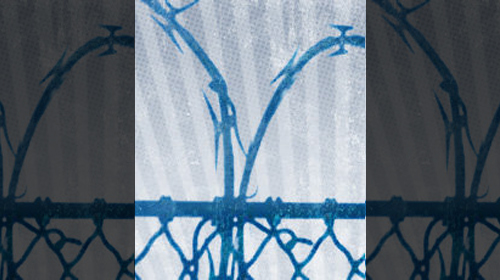
Corrections Corporation of America (CCA), the world’s largest for-profit prison company, planned to contract with Immigration and Customs Enforcement (ICE) to build a new private detention center. Resistance by the local community gained momentum. Then the plan unraveled.
These sentences describe two entirely different stories—stories that unfolded last week in communities 1300 miles apart.
In Southwest Ranches, Florida, ICE had announced plans to contract with CCA for a new immigration detention center. Facing resistance from the local community, the plan began to wobble in the spring. In fact, as we noted in this op-ed, the government said the deal was off, only to backpedal hours later. The death knell finally came on Friday night, with ICE announcing that it had "reevaluated its need for an additional detention facility in South Florida and . . . decided that it will no longer pursue a facility in the Town of Southwest Ranches.”
In Crete, Illinois, the same government agency (ICE) planned to contract with the same private prison company (CCA) to build the same kind of facility (a for-profit immigration detention center). The Illinois House responded by passing legislation that would kill the project, but the bill failed by a narrow margin in the Senate. Then Crete took matters into its own hands. Last Monday night, the Village Board voted unanimously against the plan.
The close timing of these events appears coincidental. But an important truth lies beneath the identical fate of these twin schemes: Private prisons are a bad idea.
From a human rights standpoint, privatized incarceration presents a serious threat. Last year, the ACLU of Texas sued CCA after an officer sexually abused multiple immigration detainees. A CCA prison in Idaho was dubbed the “Gladiator School” due to extreme levels of violence. In March, a federal judge described conditions in a private prison run by another for-profit company as “a picture of such horror as should be unrealized anywhere in the civilized world.”
Meanwhile, for local residents, the benefits of becoming a prison town are questionable at best. New prisons, whether public or private, appear to bring little economic gain. A 2010 study by researchers at Washington State University and Ohio State University noted "the failure of prisons to spur growth."
Southwest Ranches and Crete are not alone in saying no to private prisons. In communities and churches, in state legislatures and town councils, people are standing up against for-profit incarceration. In December, the United Methodist Church divested itself of all private prison stock, finding it immoral to profit from the imprisonment of human beings. In February, the Florida legislature voted down a scheme to privatize dozens of state prisons. Now Southwest Ranches and Crete have joined the chorus, telling the private prison industry: “thanks but no thanks.”
Learn more about private prisons: Sign up for breaking news alerts, follow us on Twitter, and like us on Facebook.
Stay informed
Sign up to be the first to hear about how to take action.
By completing this form, I agree to receive occasional emails per the terms of the ACLU's privacy statement.
By completing this form, I agree to receive occasional emails per the terms of the ACLU's privacy statement.

